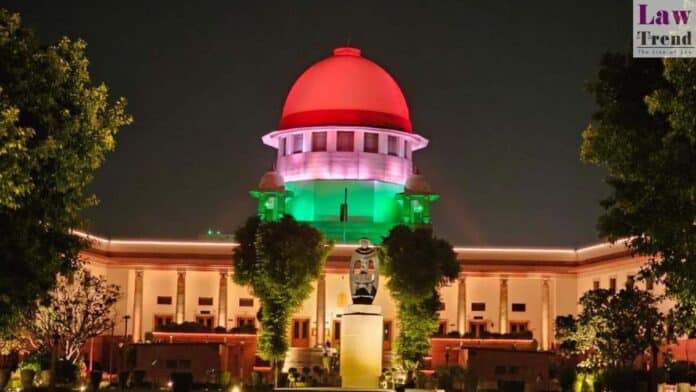The Supreme Court announced that it will hear the pleas of the West Bengal government and other appellants on September 24, challenging a Calcutta High Court decision that invalidated the appointments of 25,753 teachers and non-teaching staff in state-run and aided schools. The bench, led by Chief Justice D Y Chandrachud and comprising Justices JB Pardiwala and Manoj Misra, had to defer the scheduled hearing due to the engagement with other matters.
Initially slated for September 10, the hearing was pushed back to allow parties to submit their responses by the revised deadline of August 16, as mandated by the top court. Furthermore, the court instructed nodal counsel—Astha Sharma, representing the state government, along with Shalini Kaul, Partha Chatterjee, and Shekhar Kumar—to compile the records electronically and ensure all cited judgments were included in one PDF document set.
The Supreme Court is currently overseeing 33 petitions that arose from the High Court’s April 22 judgment. This includes a plea from the West Bengal government itself, which received a temporary reprieve on May 7 when the Supreme Court allowed the affected staff to continue their roles but upheld the ongoing Central Bureau of Investigation (CBI) inquiry into the recruitment irregularities. The inquiry may extend to state Cabinet members as deemed necessary by the court, which has, however, barred any immediate arrests during the investigation.
During previous proceedings, the Supreme Court pointed to the possibility of distinguishing between tainted and legitimate appointments, suggesting that invalidating the entire recruitment process might be excessive if separable. This stance came amid broader concerns about the integrity of public service recruitment, with Chief Justice Chandrachud emphasizing the grave implications of such systemic fraud on public trust and social mobility.
The case stems from significant discrepancies in the 2016 State Level Selection Test (SLST), where 25,753 appointment letters were issued for 24,640 advertised vacancies, some even after the official recruitment dates had expired. The High Court had also ordered those who were improperly appointed to repay their salaries with interest, reflecting the scale of the oversight and the legal entanglements that followed.




